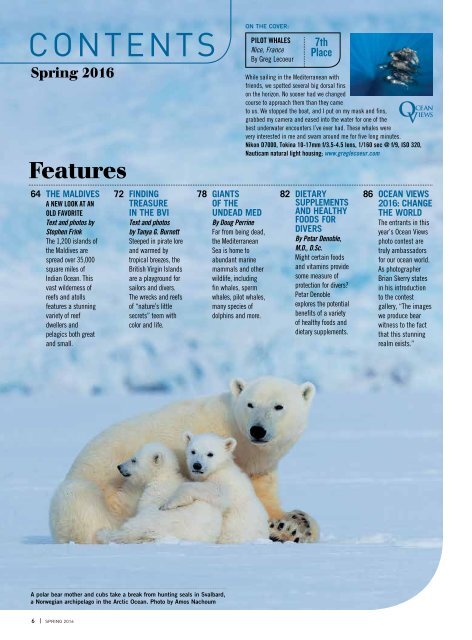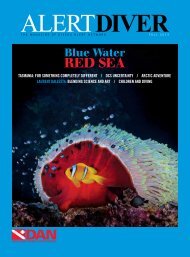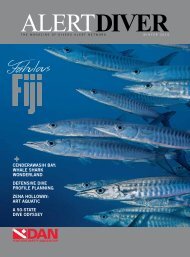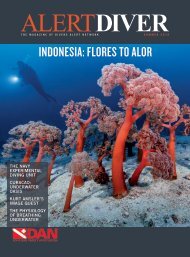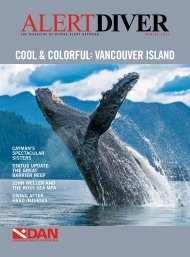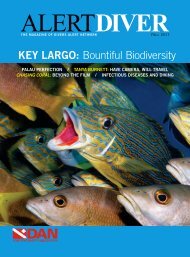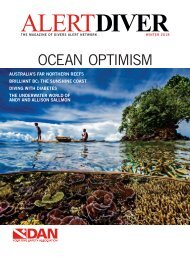AD 2016 Q2
As we pointed out in the spring 2013 edition of the Alert Diver, even being a dive buddy has potential legal implications. So, to bump this up a notch, what about the diver training organisations themselves? Where do they stand? How do they relate to South African law? Are they all considered the same under our legal system in spite of the differences in organisational structures and training programmes? How does this affect their respective instructors and trainee divers from a legal perspective? These are not exactly simple questions. It is certainly true that the respective training organisations differ in a number of ways. However, this does not imply that there are necessarily differential legal implications for each of them. In fact, under South African law, the legal principles are common in all matters. Therefore, if you suffer a loss and you (or your estate in the case of a fatality) wish to recover damages, the legal principles would be applied commonly; whether you are driving or diving. Although not a frequent occurrence, there have been quite a number of law suits associated with diving injuries and damages in South Africa. This is not surprising, as the occurrence of law suits is really a function of “numbers”. As training increases, so do the chances of injuries and, with it, the chances of legal recourse. So, it remains wise to insure yourself, your equipment or your business in a proper and effective way. But before getting back to the potential differences amongst the training agencies, let’s first explore the foundational legal principles on which any civil claim would be adjudicated: inherent risk, negligence and duty to take care.
As we pointed out in the spring 2013 edition of the Alert Diver, even being a dive buddy has potential legal implications. So, to bump this up a notch, what about the diver training organisations themselves? Where do they stand? How do they relate to South African law? Are they all considered the same under our legal system in spite of the differences in organisational structures and training programmes? How does this affect their respective instructors and trainee divers from a legal perspective? These are not exactly simple questions.
It is certainly true that the respective training organisations differ in a number of ways. However, this does not imply that there are necessarily differential legal implications for each of them. In fact, under South African law, the legal principles are common in all matters. Therefore, if you suffer a loss and you (or your estate in the case of a fatality) wish to recover damages, the legal principles would be applied commonly; whether you are driving or diving.
Although not a frequent occurrence, there have been quite a number of law suits associated with diving injuries and damages in South Africa. This is not surprising, as the occurrence of law suits is really a function of “numbers”. As training increases, so do the chances of injuries and, with it, the chances of legal recourse.
So, it remains wise to insure yourself, your equipment or your business in a proper and effective way. But before getting back to the potential differences amongst the training agencies, let’s first explore the foundational legal principles on which any civil claim would be adjudicated: inherent risk, negligence and duty to take care.
You also want an ePaper? Increase the reach of your titles
YUMPU automatically turns print PDFs into web optimized ePapers that Google loves.
CONTENTS<br />
Spring <strong>2016</strong><br />
Features<br />
64 THE MALDIVES<br />
A NEW LOOK AT AN<br />
OLD FAVORITE<br />
Text and photos by<br />
Stephen Frink<br />
The 1,200 islands of<br />
the Maldives are<br />
spread over 35,000<br />
square miles of<br />
Indian Ocean. This<br />
vast wilderness of<br />
reefs and atolls<br />
features a stunning<br />
variety of reef<br />
dwellers and<br />
pelagics both great<br />
and small.<br />
72 FINDING<br />
TREASURE<br />
IN THE BVI<br />
Text and photos<br />
by Tanya G. Burnett<br />
Steeped in pirate lore<br />
and warmed by<br />
tropical breezes, the<br />
British Virgin Islands<br />
are a playground for<br />
sailors and divers.<br />
The wrecks and reefs<br />
of “nature’s little<br />
secrets” teem with<br />
color and life.<br />
78 GIANTS<br />
OF THE<br />
UNDE<strong>AD</strong> MED<br />
By Doug Perrine<br />
Far from being dead,<br />
the Mediterranean<br />
Sea is home to<br />
abundant marine<br />
mammals and other<br />
wildlife, including<br />
fin whales, sperm<br />
whales, pilot whales,<br />
many species of<br />
dolphins and more.<br />
ON THE COVER:<br />
PILOT WHALES<br />
Nice, France<br />
By Greg Lecoeur<br />
7th<br />
Place<br />
While sailing in the Mediterranean with<br />
friends, we spotted several big dorsal fins<br />
on the horizon. No sooner had we changed<br />
course to approach them than they came<br />
to us. We stopped the boat, and I put on my mask and fins,<br />
grabbed my camera and eased into the water for one of the<br />
best underwater encounters I’ve ever had. These whales were<br />
very interested in me and swam around me for five long minutes.<br />
Nikon D7000, Tokina 10-17mm f/3.5-4.5 lens, 1/160 sec @ f/9, ISO 320,<br />
Nauticam natural light housing; www.greglecoeur.com<br />
82 DIETARY<br />
SUPPLEMENTS<br />
AND HEALTHY<br />
FOODS FOR<br />
DIVERS<br />
By Petar Denoble,<br />
M.D., D.Sc.<br />
Might certain foods<br />
and vitamins provide<br />
some measure of<br />
protection for divers?<br />
Petar Denoble<br />
explores the potential<br />
benefits of a variety<br />
of healthy foods and<br />
dietary supplements.<br />
86 OCEAN VIEWS<br />
<strong>2016</strong>: CHANGE<br />
THE WORLD<br />
The entrants in this<br />
year’s Ocean Views<br />
photo contest are<br />
truly ambassadors<br />
for our ocean world.<br />
As photographer<br />
Brian Skerry states<br />
in his introduction<br />
to the contest<br />
gallery, “The images<br />
we produce bear<br />
witness to the fact<br />
that this stunning<br />
realm exists.”<br />
A polar bear mother and cubs take a break from hunting seals in Svalbard,<br />
a Norwegian archipelago in the Arctic Ocean. Photo by Amos Nachoum<br />
6 | SPRING <strong>2016</strong>


